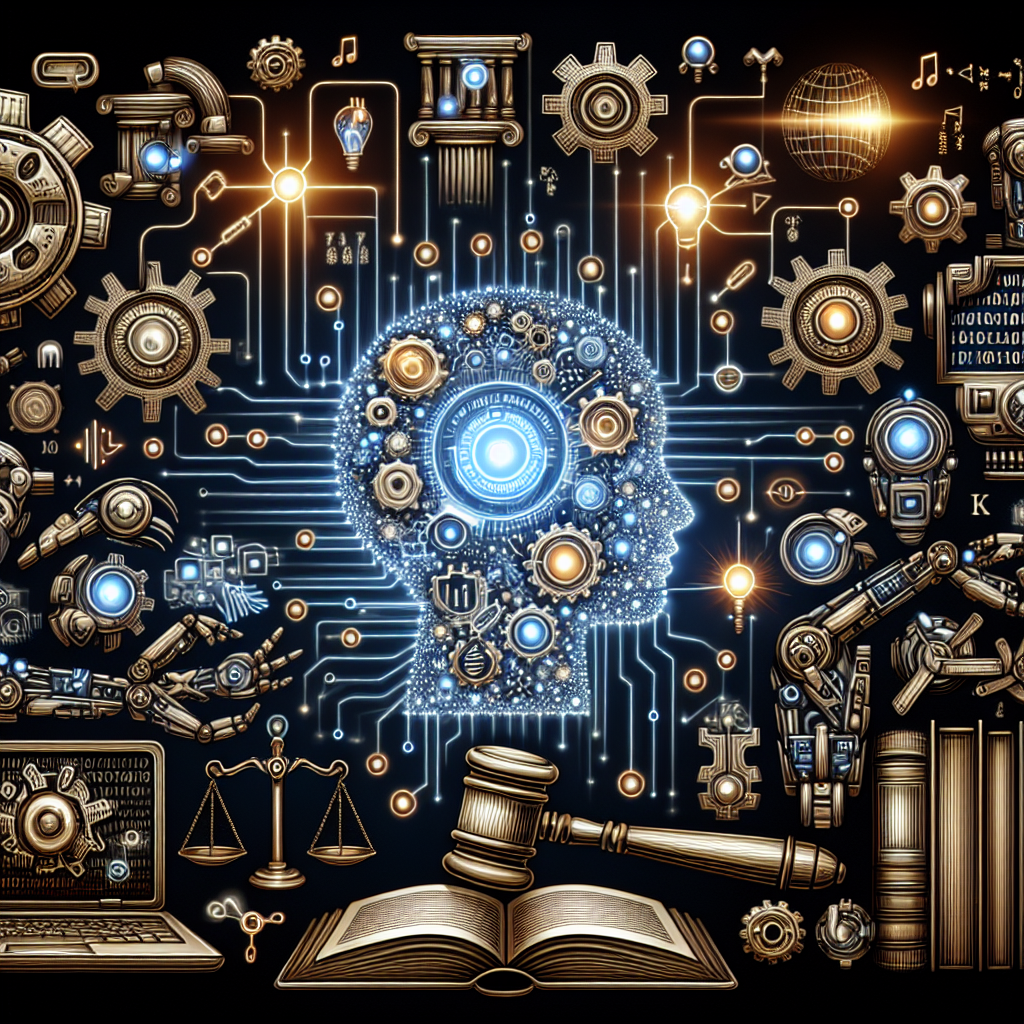The Impact of AI on Legal Process Automation
Artificial intelligence (AI) has already made significant strides in various industries, including healthcare, finance, and marketing. One area that is also being transformed by AI is the legal industry. Legal process automation is the use of technology to streamline and improve legal processes, and AI is playing a key role in this transformation.
AI technology, such as machine learning and natural language processing, has the potential to revolutionize how legal professionals work. From contract review to legal research, AI tools are helping to automate routine tasks, allowing lawyers to focus on more complex and strategic work. In this article, we will explore the impact of AI on legal process automation and how it is changing the way legal services are delivered.
1. Contract Review
One of the most time-consuming tasks for legal professionals is reviewing contracts. AI-powered contract review tools can quickly analyze and extract key information from contracts, such as clauses, obligations, and deadlines. These tools use machine learning algorithms to identify patterns and inconsistencies in contracts, helping lawyers to review and draft contracts more efficiently.
AI contract review tools can also help to reduce the risk of errors and improve compliance with legal regulations. By automating the contract review process, legal professionals can save time and focus on more strategic tasks, such as negotiating deals and advising clients.
2. Legal Research
Legal research is another area where AI is making a significant impact. AI-powered research tools can analyze vast amounts of legal data and provide lawyers with relevant case law, statutes, and regulations. These tools use natural language processing to understand and interpret legal documents, helping lawyers to find the information they need quickly and accurately.
AI research tools can also help to uncover insights and trends in legal data, allowing lawyers to make more informed decisions and develop stronger legal arguments. By automating the research process, legal professionals can save time and improve the quality of their work.
3. Predictive Analytics
AI technology is also being used to predict legal outcomes and trends. Predictive analytics tools can analyze past cases and legal data to forecast the likely outcome of a legal dispute or transaction. These tools use machine learning algorithms to identify patterns and correlations in legal data, helping lawyers to make more informed decisions and develop effective legal strategies.
Predictive analytics can also help to identify potential risks and opportunities in legal matters, allowing lawyers to proactively address issues and mitigate risks. By using AI-powered predictive analytics tools, legal professionals can improve their decision-making processes and deliver better outcomes for their clients.
4. Virtual Assistants
Virtual assistants, powered by AI technology, are also becoming increasingly popular in the legal industry. These virtual assistants can perform a variety of tasks, such as scheduling appointments, managing documents, and answering legal queries. By automating routine tasks, virtual assistants can help lawyers to be more productive and focus on higher-value work.
Virtual assistants can also improve client interactions and satisfaction by providing timely and accurate information. By using AI-powered virtual assistants, legal professionals can enhance their efficiency and deliver better service to their clients.
5. Regulatory Compliance
AI technology is also being used to improve regulatory compliance in the legal industry. AI-powered compliance tools can analyze legal regulations and policies to ensure that organizations are in compliance with applicable laws and regulations. These tools can provide real-time alerts and recommendations to help organizations stay compliant and avoid legal risks.
AI compliance tools can also help to streamline compliance processes and reduce the burden on legal teams. By automating compliance tasks, organizations can save time and resources, while also improving their overall compliance posture.
FAQs
1. What are the benefits of using AI in legal process automation?
There are several benefits of using AI in legal process automation, including:
– Increased efficiency: AI-powered tools can automate routine tasks, allowing legal professionals to focus on more strategic work.
– Improved accuracy: AI technology can help to reduce errors and improve the quality of legal work.
– Enhanced decision-making: AI tools can analyze vast amounts of data and provide valuable insights to help lawyers make more informed decisions.
– Cost savings: By automating tasks, AI technology can help to reduce the time and resources required to complete legal processes.
2. Will AI replace human lawyers?
While AI technology is transforming the legal industry, it is unlikely to completely replace human lawyers. AI tools are designed to assist and enhance the work of legal professionals, rather than replace them. Human lawyers bring important skills, such as critical thinking, judgment, and emotional intelligence, that AI technology cannot replicate.
3. How can legal professionals prepare for the impact of AI on their industry?
Legal professionals can prepare for the impact of AI by:
– Embracing technology: Legal professionals should familiarize themselves with AI tools and be open to incorporating them into their work.
– Upskilling: Legal professionals should develop skills in areas such as data analysis, technology, and project management to adapt to the changing legal landscape.
– Collaborating with technology experts: Legal professionals should work with technology experts to leverage AI tools and maximize their benefits.
In conclusion, AI technology is revolutionizing legal process automation and transforming the way legal services are delivered. By automating routine tasks, improving decision-making, and enhancing compliance, AI is helping legal professionals to work more efficiently and effectively. As AI continues to evolve, it is essential for legal professionals to embrace technology and adapt to the changing legal landscape. By leveraging AI tools, legal professionals can enhance their skills, improve their services, and deliver better outcomes for their clients.

